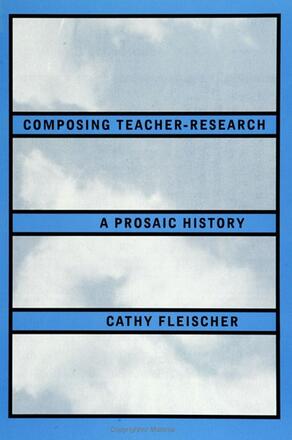
Composing Teacher-Research
A Prosaic History
Alternative formats available from:
This story of a teacher's growth as a researcher in the classroom reflects the larger issues of the debate about this kind of research during the last decade.
Description
In Composing Teacher-Research the author provides a much needed critical look at the teacher-research movement by recounting her own experiences over the past decade. Informed by readings in a number of disciplines and by her own classroom practice, Fleischer documents the shifts and changes she made as a teacher when she took on the additional role of researcher. The book presents four case studies of classrooms and students, at both the high school and college level, focusing on the ways students see their own literacy in and out of school. Fleischer not only reproduces these case studies as they were written at various points in her journey, but provides commentary through pre- and post-scripts in which she points out particular issues of concern for those who practice classroom research: what it means to represent others' experiences, how we can create research which is at the same time ethical and pedagogically sound, how the stakes for being a teacher-researcher have changed in a postmodern world.
Cathy Fleischer is Associate Professor of English and Director of the Eastern Michigan Writing Project at Eastern Michigan University.
Reviews
"This is a wonderful book, in part because it is very readable, accessible to multiple audiences without sacrificing theoretical/ideological integrity, and draws on an impressive list of interdisiplinary resources. It is 'theory as autobiography,' and an exciting example of teacher research that demonstrates problems/issues of representation, subjectivities. Fleischer provides one exciting example of passionate research!" — David Schaafsma, University of Wisconsin-Madison
"Fleischer's unique contribution in the work is to reveal to practicing teachers how close at hand the problems for study are to them, how unfussy their methods of undertaking those studies may be and still be intellectually sound. She gives legitimacy to every-day insights. I believe her work will serve as a model for a repertoire of practices that teachers in schools may undertake. She makes complex theory accessible as gracefully as she makes students come alive on the pages of her book." — Patricia Lambert Stock, Michigan State University